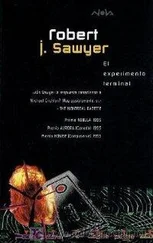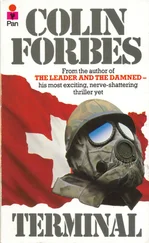Early in her life, under Saddam’s reign, Giti’s family had worshipped God as Evangelical Christians under a government policy of narrow tolerance. Christians, as with the Sunni Muslims, along the upper Tigris valley had supported Iraq’s Ba’athist socialism and Hussein’s regime. In return, Saddam tolerated them.
Her father and mother had married in the little Presbyterian church in Mosul, located on the city’s Right Coast, near the corner of Nineveh and Nabi Jorjis Streets, which stood in the shadows of the Al-Nabi Jarjis Shrine, Al-Hadba’a Minaret, and Al-Noree Grand Mosque.
Then, with the fall of Saddam Hussein and the arrival of the Americans, which installed Iraq’s Shia-led government, Muslim Ba’athist socialists became jihadists of Ansar al-Sunnah, that became Ansar al-Ahlu Sunnah and Ansar al-Islam, and that became Jamaat Ansar al-Sunnah. They swore death to the Shia’s Mahdi Army and their allies in the Iraqi and American governments, and to all Christians. Thus Abu Omar murdered Giti’s father and two younger brothers. He cut their throats and took off their heads as Giti and her mother and baby sister watched. Then he turned his pistol on the mother and her child, and offered them life if they embraced Islam and renounced their Christian faith. When they refused, he shot them point-blank. First the child. Then the mother.
Abu Omar Bakr al-Nasser later put his people in the Sadiq family farm. The farm that Giti’s father and grandfather and great-grandfather had scratched from bare ground with their blood and sweat, and made flourish over generations. It now became a resource for the Ansar al-Sunnah army. Because Abu Omar had found her desirable, he took Giti as a slave, along with two other Christian girls from Al-Shirqat.
With her family still warm on the ground, their blood running into the soil that once grew their crops of wheat, oats, and lentils along the rich Tigris lands, Abu Omar gave the other Christian women the chance to live by turning from Jesus Christ and bowing to the Muslim faith. All they had to do was bow down to Muhammad.
Most of the women and children did this by kneeling before Omar and declaring themselves Muslim, but a few refused. One at a time, the graybeard shot them with his pistol. Even the smallest child.
Like every charismatic leader, Abu Omar Bakr al-Nasser had his grand scheme for the world. He foresaw a great land of Islam, the mountains lowered and the valleys raised. A return to the splendor of Persia, the Levant, a time where no borders contain the Muslim people, and Arabs rule without equal.
Just as the prophesies foretell, Moslem brothers of the west will look across this plain and see their Moslem brothers of the east, and Moslem brothers of the east will likewise look across that plain and see their Moslem brothers of the west. Omar prayed to Allah for the prophesies of the Hadith, a world united in Islam, to come now, without further delay. Hasten the Mahdi, who will bear Muhammad’s name and his father’s name, and will be the protector of knowledge, the heir to all the knowledge of all the prophets and aware of all things, to now be born and lead Islam with justice and peace in a world torn by injustice and tyranny. He believed that violence and chaos would hasten the birth of this Guided One, the Lord of the Ages, and his time of Islamic Ummah would finally come.
Abu Omar preached these Sunni beliefs, steeped in his Ba’ath Socialist ideals, to his growing army, and embraced the Palestinian Abu Musab al-Zarqawi and his al-Qaeda Iraq camp as brothers in common cause. The enemy of my enemy is my friend.
Likewise, others from outside the Sunni Muslim world came to this united jihad. Pilgrims of other Islamic sects from Europe, the West, and the Far East. Together, they shared the common dream of an Arab-led Islamic state and a united world of Islam.
“How much farther?” a voice in the darkness behind the cab spoke through the open back window, the glass removed to make it a crawl space in and out of the hidden compartment.
“We approach Haditha now,” Abu Omar answered the man, glancing over his shoulder. “There may be roadblocks with inspections before the bridge. You will have to push those crates closed in front of the window and remain silent until we move again.”
“My poor eyes and nose will never recover,” the man they called Juba said in French.
“It cannot be helped,” Omar answered. “The Americans have dogs that can smell people and explosives hidden in cargo. The hot peppers, garlic, and onions interfere with the dogs’ smelling. Trust me. You will recover in a day.”
Juba and one other of the six men hidden in the box came from Chechnya. Born and raised in the Chechen region of Ichkeria, he and his partner had declared jihad under the flag of the Caucasus Emirate.
Dzhamal Umarov had become known among jihadists as Juba over the past two years, whom they also touted in their propaganda as the Phantom of Baghdad. A sniper menace to the Americans. He had trained as a sniper in the Russian army, along with his spotter, Khasan Shishani, whom the Arabic-speaking Sunni now simply called Hasan.
While less than fluent in Arabic or Farsi, both Umarov and Shishani spoke beautiful French, fluent without accent. Thus to communicate with Juba and Hasan, Abu Omar spoke mostly French, interspersed with Arabic, and they understood each other very well.
After the fall of the Soviet Union, Juba and Hasan had disappeared for several years of their youth to the south of France. They lived around Avignon, working in the lavender fields and vineyards, driving cars and guiding tourists, posing as French natives and students at Université d’Avignon . They maintained an on-again, off-again residence in Avignon, and quietly developed a history with French-citizen documentation, student identification cards, and ultimately obtained French passports under the names Davet Taché and Jean René Decoux.
Documented as French citizens, they lived well in Baghdad, posing as import-export businessmen from Avignon. Their long-held French residence served as their home office.
Dzhamal Umarov roamed freely in the world as Davet Taché, and Khasan Shishani likewise lived as Jean René Decoux. They both frequently dined at the French and American embassies, getting to know military officers, contractors, and diplomats, and socialized with many in the Western media. They were both dashing, well-mannered, and finely dressed French rogues, braving the dangers of war-torn Baghdad for profit and adventure. And everyone loved them.
They both had claimed service in the French military as Troupes de Marine , in the Ninth Infantry Regiment, 9e Régiment d’Infanterie de Marine . Davet Taché even wore a French Marine beret badge above a set of jump wings on his stylish leather bomber jacket. Both he and Jean René wore miniature French paratroop emblems and service rosettes on their suit lapels: veterans of foreign military service.
The two men spoke, lived, and looked like authentic French businessmen and armed forces veterans, keenly clued in on military tactics and strategies, as well as economics and business. Yet without question, they both lived to die for Islam and the jihad.
Long ago, they had made it a habit to never speak to each other or anyone else in their native Caucasian language. They spoke French. To the Americans, they spoke English with their natural French accents.
The four others in back with Juba and Hasan were their driver, Mahmoud, who doubled as a bodyguard, and their three full-time bodyguards, Ali, Jalal, and Yazen. The six men had driven in two cars from Baghdad to Baiji. Juba and Hasan rode in the backseat of their Daytona metallic-blue lead Mercedes sedan, with Mahmoud driving and Jalal riding shotgun, while Ali and Yazen followed behind in the Taché-Decoux Trading Company’s Zambezi silver Range Rover. They parked the vehicles with their hotel’s valet service, checked in, changed clothes, and quietly slipped away, unseen.
Читать дальше












